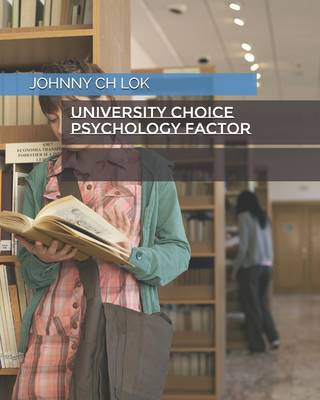
- Afhalen na 1 uur in een winkel met voorraad
- Gratis thuislevering in België vanaf € 30
- Ruim aanbod met 7 miljoen producten
- Afhalen na 1 uur in een winkel met voorraad
- Gratis thuislevering in België vanaf € 30
- Ruim aanbod met 7 miljoen producten
Zoeken
Omschrijving
I shall indicate Malaysia educational system for public and private university attractive degree comparision to explain why customer ( student ) relationship management plan is important. Malaysia includes public and private both institutions and it has public and private university, polytechnic, college, non-university status institutions and local or forcing university's branch campus. However, public universities in Malaysiz still attract the majority of undergrauates. Because public universities degree specification are recognised by the public services department, thus, individuals who hold degrees from public universities can work in the public sector, public universities are heavily subsidised by the government are therefore, fees are much cheaper than at private universities. Moreover, public universities can offer more places for professional and critical courses, e.g. medicine, dentistry, pharmaceutical studies, architecture, engineering, law, accounting with qualifications that are mostly accrecited and recognised by the respective local professional bodies and public universities provide students with a wider choice of programs in various fields of study.Student applications for entry into bachelor's degree programs centralised processing agency. The agency of the ministry of higher division of student admission. Applicants need to provide a list of their choice of universities and programs and receive an offer from only one public university. In some case, the offer may even be from a university or program that was not included in the applicant's list of choices. However, the decision students make regarding their education revolves around several issues: first, students who finish their high school education must decide whether to pursue their tertiary education. Second, students who choose to further their education must take a choice regarding their program or field of education and institution of higher education and the institution of higher education.Thus, in any university's customer relationship management plan, it can consist this first content, such as to find what factors can influence the students' choice of this specific institution of higher education. The tertiary institution choice modes include the following: economic models, sociological and combined models. Economic models of human capital investment emphasise rational decision ranking behavior when examining student's college choice. Students choose a college based on the level of value that each institution offers by comparing costs with perceived benefits. If the students feel the benefits of attending the institution are greater than the perceived benefits of enrolling in order institution. The contribution of human capital investment factors, e.g. family income, tuition and financial aid on enrolments. For example, Ellwood and kane (2000) used a human capital income and college enrollment when controlling for academic ability, tuition and financial aid and preference ( measured by parental education). Although the human capital investment model shows the effects of variables like income and ability on college related decision, it has limited usefulness in explaining source of difference in college choices across groups.
Specificaties
Betrokkenen
- Auteur(s):
- Uitgeverij:
Inhoud
- Aantal bladzijden:
- 60
- Taal:
- Engels
Eigenschappen
- Productcode (EAN):
- 9781677662661
- Verschijningsdatum:
- 19/12/2019
- Uitvoering:
- Paperback
- Formaat:
- Trade paperback (VS)
- Afmetingen:
- 203 mm x 254 mm
- Gewicht:
- 185 g

Alleen bij Standaard Boekhandel
+ 55 punten op je klantenkaart van Standaard Boekhandel
Beoordelingen
We publiceren alleen reviews die voldoen aan de voorwaarden voor reviews. Bekijk onze voorwaarden voor reviews.











